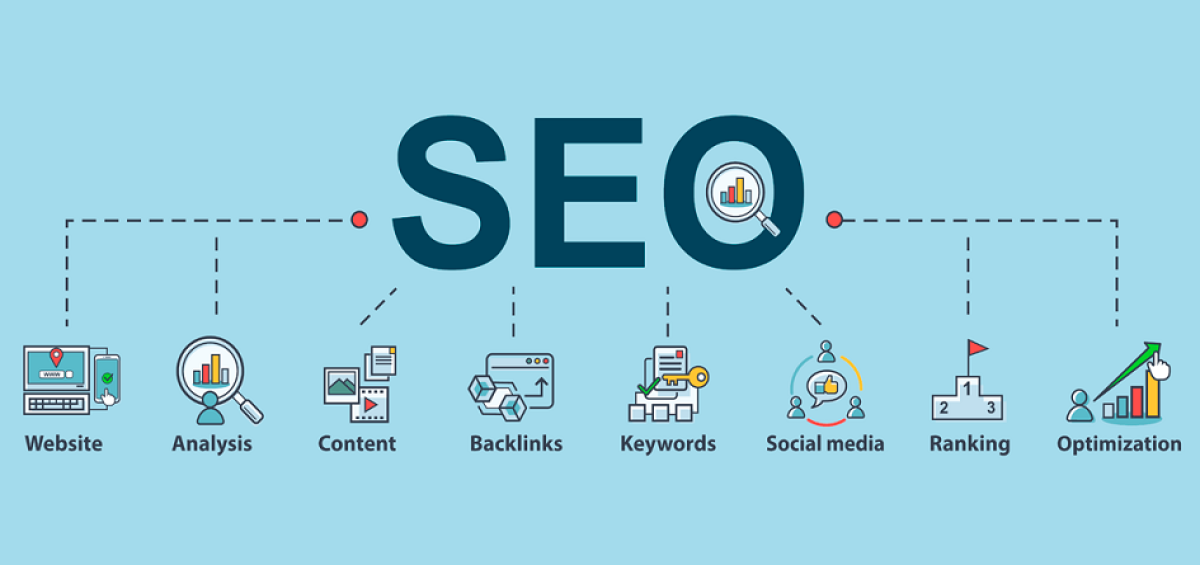In today’s hyper-connected digital era, establishing a strong online presence is no longer optional, it’s a necessity. With billions of websites competing for attention, the question isn’t whether your business or personal brand needs to be online, but how visible it is amidst the digital crowd. This is where the Search Engine Optimization course, specifically SEO, becomes a game-changer. SEO is the strategic process of enhancing your website’s visibility in search engine results, ensuring your content reaches the right audience at the right time.
From small local businesses to global enterprises, the benefits of SEO are universal. But what exactly does it involve? Understanding concepts like “What is SEO and how it works” or applying practical strategies like keyword research and content optimization are crucial for tapping into the vast potential of the digital world. Today, SEO plays an integral role in digital marketing, where it drives organic traffic, boosts brand awareness, and improves user engagement.
Moreover, the scope of SEO extends beyond basic tactics. It encompasses a wide range of techniques, including on-page optimization, technical SEO, and link building, which work together to elevate your site’s ranking. For those eager to dive deeper, enrolling in a Search Engine Optimizing course can provide valuable insights and skills.
This article will explore how engine optimizing boosts online visibility, offering actionable tips, examples, and insights into its effectiveness. Whether you’re a business owner, a budding marketer, or simply curious about search engine optimizing in digital marketing, this guide will empower you to leverage SEO’s full potential for lasting success.
Search Engine Optimization Techniques
To improve your online visibility, you can leverage the following techniques:
- Keyword Research: Identify terms your audience is searching for using tools like Google Keyword Planner.
- Content Optimization: Create high-quality, engaging, and informative content around relevant keywords.
- Backlinking: Earn links from reputable websites to increase authority.
- Mobile Optimization: Ensure your website is responsive and mobile-friendly.
- Page Speed Improvements: Faster websites rank better and offer a superior user experience.
- Schema Markup: Help search engines understand your content better through structured data.
What is SEO and How It Works?
SEO is a process that involves improving the quality and quantity of website traffic by enhancing its visibility on search engines. It focuses on organic search results, excluding paid advertisements. SEO operates through three main components:
- Crawling and Indexing: Search engines crawl the internet to discover content and index it for retrieval during searches.
- Algorithms and Ranking Factors: These determine which websites are displayed at the top based on relevance, quality, and user intent.
- Optimization: By tailoring content and website structure to align with these algorithms, websites can improve their ranking.
Types of Search Engine Optimization
SEO can be categorized into various types, each serving a unique purpose:
- On-Page SEO: This focuses on optimizing individual web pages, including keyword usage, meta descriptions, and content quality.
- Off-Page SEO: Activities like link building and social media marketing help improve domain authority.
- Technical SEO: Ensures a website is technically sound, with fast load times, mobile-friendliness, and proper indexing.
- Local SEO: Targets a specific geographic audience, making it essential for small businesses.
- E-commerce SEO: Optimizes product pages and categories for online stores to drive sales.
Search Engine Optimization in Digital Marketing
SEO is a cornerstone of digital marketing, offering several benefits:
- Increased Visibility: Appearing on the first page of search results boosts brand awareness.
- Higher ROI: Organic traffic from SEO often outperforms paid campaigns in cost-effectiveness.
- Targeted Audience: SEO aligns your content with user intent, driving qualified traffic.
- Sustainable Growth: Unlike ads, SEO efforts have a long-term impact.
SEO example can include optimizing a local bakery’s website for “best cupcakes near me” or an e-commerce platform ranking for “affordable running shoes.”
How Effective Is Search Engine Optimization?
SEO is highly effective when implemented correctly, offering a sustainable way to improve online visibility, drive traffic, and achieve business goals. Unlike paid advertising, which provides instant but short-lived results, SEO builds a long-term foundation for organic traffic growth. By aligning website content and structure with search engine algorithms, SEO ensures that your site appears prominently in search results when users are actively seeking relevant products, services, or information.
Its effectiveness lies in its ability to attract a targeted audience. With tools like keyword research and data analytics, businesses can tailor their strategies to match user intent, ensuring higher engagement rates and better conversion possibilities. SEO is also cost-efficient compared to other marketing methods, delivering a greater return on investment over time.
However, the effectiveness of SEO depends on consistency and adaptability. Search engine algorithms are constantly evolving, requiring regular updates to SEO strategies. Additionally, factors such as the level of competition in your industry, the quality of your website content, and your technical SEO practices play significant roles in determining success.
The Role of Education and Careers in SEO
For those interested in pursuing a career in SEO, various Search Engine optimizing courses can provide a solid foundation. From learning basic concepts to mastering advanced techniques, these courses are designed for beginners and professionals alike.
With the growing importance of digital presence, Search Engine Optimization jobs are on the rise. Roles include SEO specialists, content strategists, and technical SEO analysts, offering competitive salaries and opportunities for growth.
To sum up, Search Engine optimization example, particularly SEO, is a critical tool for boosting online visibility in an ever-competitive digital landscape. By understanding the types of search engine optimizing and applying effective search engine optimizing techniques, businesses can achieve higher rankings, more traffic, and greater success. Whether you’re a business owner or aspiring professional, learning “What is SEO and how it works” through a Search Engine optimizing course is a step toward harnessing its full potential. The future of SEO is bright, making it an indispensable part of digital marketing strategies in 2025 and beyond.






